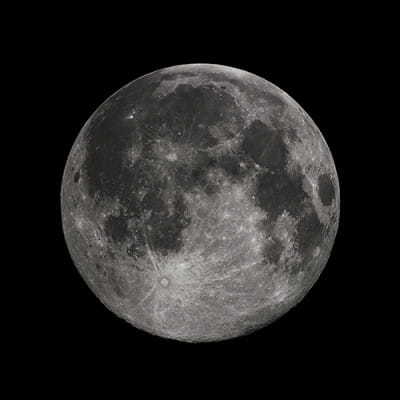Russia plans building a moon base by 2030

According to a Russian news agency TASS, Russia is planning on not only sending people to the moon, but also on keeping them there, on a moon base.
As Jalopnik rightly points out, the Saturn V served a single purpose, but it wasn't entirely practical for other missions to space. In an age where cost-cutting is just part and parcel of space travel it's hardly surprising that Russia is looking for a more cost-effective solution.
The Angera would still be a powerful rocket, capable of lifting over 700 tonnes of payload per launch, observes the Huff post.
So rather than following the old ways of building a massive launch vehicle like the Saturn V, Russia is reportedly planning to complete the moon mission using six separate rocket launches using Angera.
Each one would reportedly send a new module to the moon, building up the base in much the same way that the International Space Station was put together.
Once all the habitat modules are finally in orbit or placed on the lunar surface a manned mission would finally head off to begin its short holiday on Earth's nearest neighbour.
Before we get too excited though Russia has two clear things it needs to do. Firstly it needs to build the Angera rocket in the first place, says the Huff Post.
Once it has done that, Russia will reportedly send a lunar probe to the moon in 2024 where it will scout the moon's south pole for possible moon base locations.
Then in 2028 the first manned mission will orbit the moon with an actual landing taking place the following year in 2030. Russia would then start spending the next 10 years building up its base.
closer to home: the moon, reports the American online news aggregator Huffington Post.
According to a Russian news agency TASS, Russia is planning on not only sending people to the moon, but also on keeping them there, on a moon base.
As Jalopnik rightly points out, the Saturn V served a single purpose, but it wasn't entirely practical for other missions to space. In an age where cost-cutting is just part and parcel of space travel it's hardly surprising that Russia is looking for a more cost-effective solution.
The Angera would still be a powerful rocket, capable of lifting over 700 tonnes of payload per launch, observes the Huff post.
So rather than following the old ways of building a massive launch vehicle like the Saturn V, Russia is reportedly planning to complete the moon mission using six separate rocket launches using Angera.
Each one would reportedly send a new module to the moon, building up the base in much the same way that the International Space Station was put together.
Once all the habitat modules are finally in orbit or placed on the lunar surface a manned mission would finally head off to begin its short holiday on Earth's nearest neighbour.
Before we get too excited though Russia has two clear things it needs to do. Firstly it needs to build the Angera rocket in the first place, says the Huff Post.
Once it has done that, Russia will reportedly send a lunar probe to the moon in 2024 where it will scout the moon's south pole for possible moon base locations.
Then in 2028 the first manned mission will orbit the moon with an actual landing taking place the following year in 2030. Russia would then start spending the next 10 years building up its base.

 For all latest news, follow The Daily Star's Google News channel.
For all latest news, follow The Daily Star's Google News channel. 








Comments